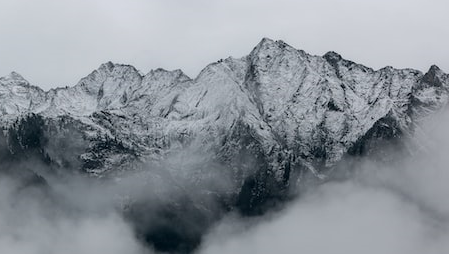Once I got the opportunity of visiting Haridwar twice in quick succession. I enjoyed both the visits immensely. The sight of a large number of pilgrims having a bath at ‘Hari Ki Pauri’ and participating in the evening aarti fascinated me. The faith of our people always leaves a great impression on me whenever I visit a holy place. Irrespective of reasoning behind this faith, I believe that in it lies the strength of our people. It is a different matter that this faith is exploited by some.
I do not have any craving for taking bath in the Ganges. Somehow it has always been so. Perhaps, it is an impression of my childhood when I observed some so-called holy women of my village behaving in a very unholy manner and their holiness being attributed to their frequent Ganges baths. That was, perhaps, why I never cared to bathe in the Ganges during my 15 days camp on the bank of the river as incharge of the Kartika Mela in the early years of my service. Even during the above two visits, I took bath in the Ganges only once and that too not at ‘Hari Ki Pauri’.
However, there was a vast difference between my last visit and these two visits after a gap of almost ten years. A lot of water had flown down the river since then and a lot of wisdom had dawned on me. Questioning the faith of people is no more my nature though I may not have the same faith. I feel faith and reason are two different things and it is not wise to apply reason in matters of faith. A faith may or may not be inspired by reason, but true faith is always enriching. At times it is beyond reason.
With this change in my outlook, the visit to the town of Holy Ganges was very enjoyable and elevating. I keenly observed the flowing river and wondered at the service it has rendered to the people from time immemorial. While thinking thus, I was fascinated by the scheme of Mother Nature which ensures that there is always a steady flow of water in the Ganges. In fact, the holiness of the Ganges is due to its flow. The moment it stops flowing, its whole sanctity will be lost. It does not consider it necessary to hoard its water in fear of the future. Even then, no one can say for how long the Ganges has been flowing and will continue to flow. Mother Nature takes care of it on its own.
There is a great lesson to learn from this fact. It applies to our acquisitions too. The moment we start hoarding our acquisitions, unholiness creeps in and they become putrefied. The acquisition then becomes a liability instead of an asset. Be it money, knowledge or any other acquisition, their flow should continue for the benefit of the society at large. The moment we try to store them for our use only, their sanctity is lost. In that case they cease to serve any good even to ourselves, leave alone society. Thus even the virtues become the sources of nuisance, when not shared properly.
The example of the Holy Ganges should also take away any fear that we may have of replenishing our resources. If Mother Nature can replenish the mighty river like the Ganges for time immemorial, it can always meet our needs. These will always be taken care of provided we are willing to share what we have. In fact, when we show our willingness to share, others too come forward to share what they have. Like the Holy Ganges which grows bigger and bigger as it flows and ultimately becomes one with the ocean, our virtues too grow by sharing. We then merge with the Creator which is the ultimate aim of life.
So the simple lesson to be learnt is that all our acquisitions come from Mother Nature and we have no exclusive right to them. They are to be shared and not to be hoarded. If we do so, we too can become as holy as the Ganges.
What we have is a gift from Him. What we do with what we have is our gift to Him.














